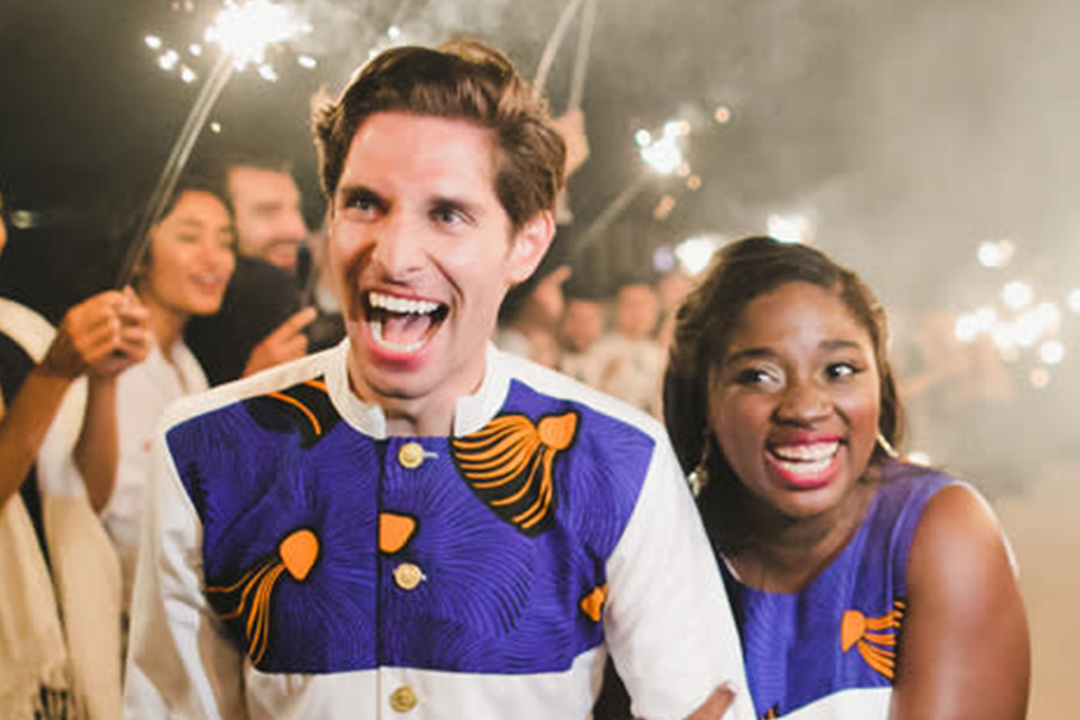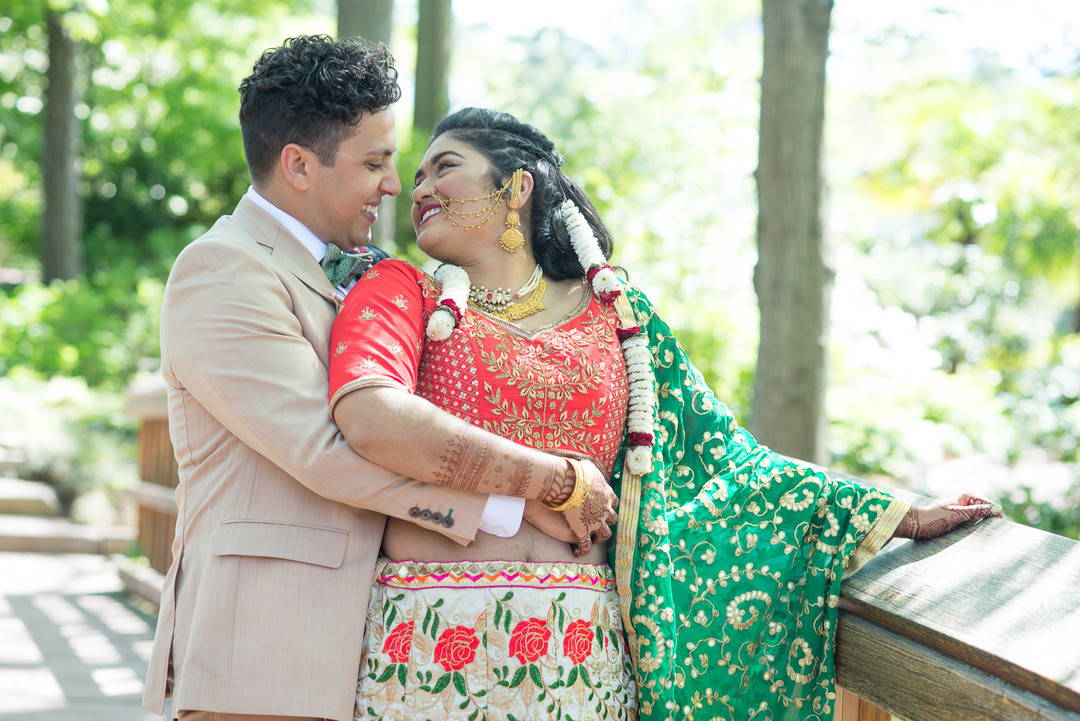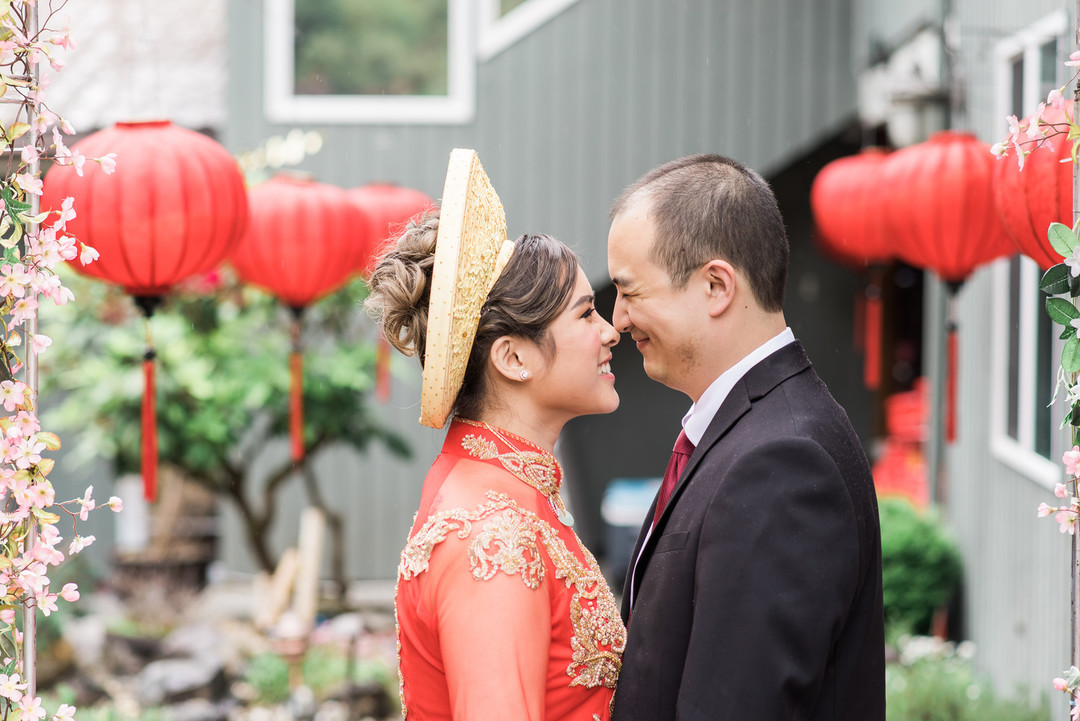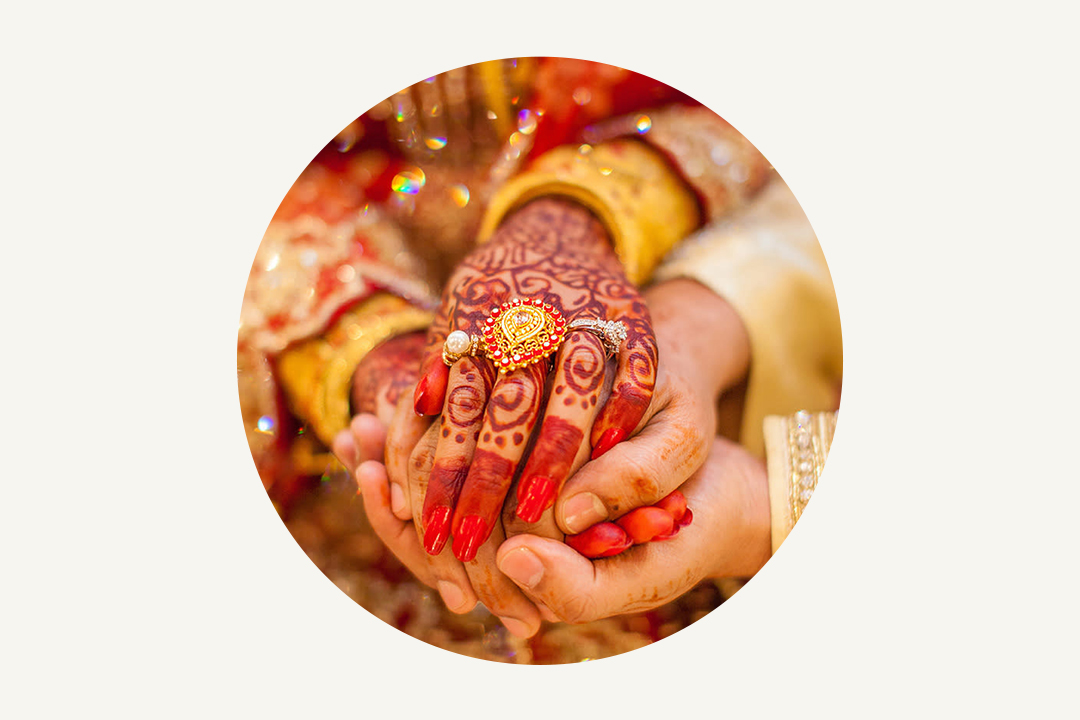- Expert advice/
- Wedding planning 101/
- Wedding day/
- 7 Tips for Merging Cultures in a Multicultural Wedding
- Wedding day
7 Tips for Merging Cultures in a Multicultural Wedding
It's not easy to merge cultures, traditions, and families for a multicultural wedding. Here are expert tips on blending two or more cultures for your wedding day.
Last updated February 5, 2024

Multicultural weddings are more than simply the joining together of two people from different backgrounds. These events celebrate the union of two different cultures or religions. While that may be a little tricky to navigate (a lot goes into blending two or more cultures), it’s definitely manageable. Here, experts share their best tips for planning the multicultural wedding of your dreams.
Outline what you want and don’t want.
Before you do anything else, pick a night for you and your partner to sit (ideally in front of your favorite meal) and talk honestly about what’s important to the two of you. You already know that you want to incorporate aspects from both of your cultures and religions–what are the must-have traditions? What are the “nice-to-haves” that aren’t mandatory?

Next, talk to your parents.
“The biggest issue that I encounter is that what the couple has in mind versus what the parents have in mind don’t match,” Leah Weinberg, CEO and founder of Color Pop Events, says. As anyone who’s ever planned a wedding knows, it’s impossible to please everyone–but when it comes to weddings, everyone has an opinion, including your parents.
Sit down with both sets of parents and ask them to list their top three most important requirements. Is it really important that you have a Jewish ceremony? Has your mom dreamed of seeing you walk down the aisle in a traditional Chinese or Korean outfit? Be honest about what’s realistic and affordable. Maybe you can’t implement every tradition your parents want, but you can incorporate at least one or two of them. Or maybe you can use the rehearsal dinner or bachelor or bachelorette parties as a way to highlight other aspects of your culture.
This is also a great opportunity to hash out any questions or concerns your parents might have, especially about customs they’re unfamiliar with. Communicating early and often will go a long way in ensuring everyone’s happy and on the same page.
Consider two ceremonies.
Weinberg recalls a couple she worked with where the bride was Jewish, the groom was Indian, and neither of them were very religious. Initially, they planned on doing one ceremony that could honor both cultures. “But then the groom's parents were firm on the fact that the bride couldn't be wearing white–a symbol of mourning in India–while doing any Indian traditions,” Weinberg says. “And the bride's mom wasn't too keen on her wearing a sari while doing any Jewish ceremony traditions.” Ultimately, the couple ended up with two ceremonies.
“If you’re finding that it’s a little difficult to compromise for the sake of one multicultural ceremony, you may feel more comfortable representing your culture with an individual wedding,” Kevin Dennis, a wedding planner at Fantasy Sound Event Service, says. That said, two ceremonies can potentially upend your budget, depending on whether you’ll need two separate reception spaces as well. Again, it’s important to keep the lines of communication open with everyone involved, including your parents, so that everyone can make sure they’re on the same page.
Get your guests involved.
Are there any details such as a particular dress code, recommended attire, or a timeline for a multi-day affair that they should be aware of ahead of time? Include that information in your invitation suite and expand upon it on your wedding website. This is an easy and helpful way to let guests know what to expect as well as help them avoid committing any faux pas, Dennis says. “It’s a great way to connect with your guests, especially those who may be attending a multicultural wedding for the first time,” he adds.
Share information on cultures, traditions, and specific prayers or readings included in the ceremony, as well as details about dress code dos and don’ts.

Hire a specialized wedding planner—if you can.
No matter how small or large, weddings come with a million little details. When you’re trying to sensitively incorporate two or more cultures or religions, you’ll have a million and one details. A wedding planner–especially one who specializes in multicultural weddings–will help you manage timelines, budgets, and more.
He or she can help you find venues and vendors who have experience accommodating specific dietary needs or menus and customs (such as a Mehendi henna ceremony, which is common in Indian and Muslim weddings) as well as help you find translators or bilingual vendors.
Think about having a bilingual ceremony.
If you know that your entire guest list speaks both languages, you may not need a professional translator or interpreter, but if most of your guests only speak one language, you’ll want to hire a professional, says Shannon Tarrant, founder of Wedding Venue Map, an online venue directory.
She suggests hiring a bilingual officiant, but if that’s not possible, a professional translator can work with whomever you hire to develop “the best system for flawless execution.” She cautions against asking a friend or family member to do the job, as there’s “more of a chance for error and an awkward flow.”
Figure out what kind of written materials or signage you need. Will you need bilingual menus, programs, or signs? Even if not, it might be helpful to print an explanation of the traditions you’re going to implement somewhere (for example, a sign on the wedding table or on the ceremony program) that outlines what the guests are about to see, what it symbolizes, and why it’s so meaningful to you and your partner. You could also have your officiant(s) say a few words before the ceremony.
Remember, it’s your day.
“Oftentimes the couple feels pulled between what they have to do, what they want to do, and making sure all the cultures feel represented equally,” Tarrant says. “It's so important for them to include the traditions that have the most meaning to them personally.”
Ultimately, it’s hard to please everyone, but remember that your friends and family love you and your partner and want you both to be happy. As long as you stay true to yourselves, your day will be perfect.
Up next for you

How to Plan a Bilingual Wedding
How To
While you and your spouse likely speak the same language, your guests may not. Here’s how to plan a bilingual wedding

25 Small Wedding Details You Don't Want to Forget
Inspiration
A lot of details go into a wedding. Don't forget the small wedding details! Add these often overlooked (but essential) items to your to-do list and check it twice.

5 Effective Ways to Fight Wedding Planning Stress
How-To
Weddings are fun, but planning them can be stressful. Here are practical ways to deal with wedding planning stress.
Featured

10 Traditional Wedding Gifts from Around the World
Inspiration
While the act of gift giving is universal, these 10 wedding gift traditions from around the world are unique to the countries that celebrate them. Click here to see the list.

112 Wedding Cake Ideas & Designs
Inspiration
Need wedding cake ideas but don’t know where to start? We’ve got you covered with this list of 112 wedding cake ideas, organized by wedding season.

29 Unique Wedding Centerpiece Ideas You'll Say "Yes" To
Wedding Style
Your wedding centerpieces don't have to feature dramatic florals in order to be beautiful. Save money and get creative with these 29 unique centerpiece ideas for your wedding reception.
- Expert advice/
- Wedding planning 101/
- Wedding day/
- 7 Tips for Merging Cultures in a Multicultural Wedding
Find even more wedding ideas, inspo, tips, and tricks
We’ve got wedding planning advice on everything from save the dates to wedding cakes.
